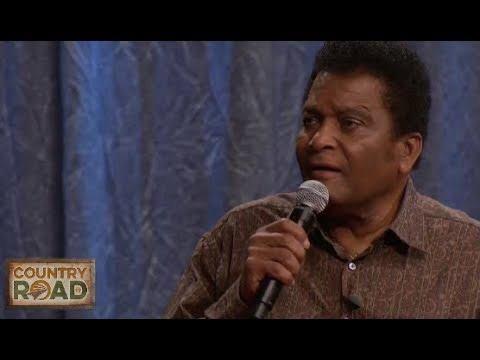The first African American Country Music star DeFord Bailey, born in 1899, was the grandson of slaves. Learning to play the harmonica after contracting polio at age three gave Bailey an edge while playing what he called “black hillbilly music” with his family in Smith County, Tennessee. Bailey met Fred “Pop” Exum while getting bicycle parts at Exum’s store “Dad’s Parts.” Bailey began performing on Exum’s radio station WDAD.
Bailey was soon invited to perform on WSM Barn Dance, later renamed “The Grand Ole Opry,” where on Dec. 10, 1927, he premiered his trademark number, “Pan American Blues.” Billed as The Harmonica Wizard, Bailey began making regular radio appearances. An expansion of station wattage gave Bailey an advantage because more people were able to hear him play. In 1928 he recorded eight tracks in Nashville, which were released by RCA, Bluebird, Victor, RCA other record companies. His greatest recording is considered to be “John Henry,” released separately in both RCA’s “race” and “hillbilly” series.
Bailey became one of the greatest performers on the Grand Ole Opry to which he was an inducted member, playing there from 1927-1941. He toured with many famous country artists during his time on the Opry, often encountering problems caused by Jim Crowe laws that prevented Blacks from eating in restaurants and sleeping in motels frequented by whites. Bailey was fired by WSM in 1941 because of a licensing conflict with BMI–ASCAP, which prevented him from playing his best-known tunes on radio, ending his performance career. He spent the rest of his life shining shoes and renting out rooms in his home to make a living. He died in 1982 and was posthumously inducted into the Country Music Hall of Fame in 2005.
Charles Frank Pride was born in 1938 in Sledge, Mississippi, and like others children of his time, was entertained by the music of radio. Being the son of sharecroppers, Pride wanted more for his family. Although he had a love for music, purchasing his first guitar at age 14, by age 16 he was a professional baseball player in the Negro American League as a pitcher for the Memphis Red Sox. He professionally played baseball until going to the Army. Upon his return, an injured arm affected his career in baseball as a pitcher. When he moved to Montana in 1960 for construction work, he was recruited to play semi- pro baseball for the East Helena Smelterites. The manager of the team aided Pride in getting a job at the local Asarco lead smelter, which offered 18 positions reserved for the players. He soon began singing at the opening of baseball games for an extra $10 and did area gigs with a band called the “Night Hawks.”
Chet Atkins heard a demo tape of Pride’s, and in 1966 he released “The Snakes Crawl at Night,” which was not successful. However, despite having to overcome the lingering racism issues of the 1960s, his third single, “Just Between You and Me,” reached No. 9 on the charts. Pride had eight hits – among them “All I Have to Offer You (Is Me),” “(I’m So) Afraid of Losing You Again” and “I Can’t Believe That You’ve Stopped Loving Me” – that concurrently reached No. 1 on the U.S. Country Hit Parade and Billboard Charts.
Pride made appearances on such shows as The Lawrence Welk Show and Bob Hope’s “Stars and Stripes Show” that were previously unheard of for African Americans, especially if they were Country Music singers. Pride had 39 No. 1 hits and became RCA’s best-selling performer since Elvis. He was the second African American to be inducted into the Grand Ole Opry and later into the Country Music Hall of Fame. His career brought him an Academy of Country Music Pioneer award, three awards each from the Country Music Association and the Academy of Country Music Awards and three Grammy Awards among others.
Hootie and The Blowfish lead singer, guitarist and songwriter, Darius Rucker, a Charleston, S.C., native, made the successful switch from his Grammy-Award winning rock band to the Country Music world in 2008. He released his first country music album called, “Learn to Live.” He reached No. 1 on the Hot Country Song Charts with his single from the album, “Don’t Think I Don’t Think About It” and No. 51 on the Billboard Country Music Charts. The artists had two more consecutive hit No. 1 Country singles, “It Won’t Be Long” and “Alright,” making him the first African American to reach the charts since Charley Pride in 1983. Rucker is respected for his amazing radio personality and his humble, friendly demeanor. The artist made his first appearance on The Grand Ole Opry in July of 2008 and has since become the third Black Country Music artist inducted as a member in the Opry’s 90-year history. Rucker’s rendition of “Wagon Wheel” from his third album and “True Believers” was No. 1 on the Country airplay charts in May 2013. Members of the cast of Duck Dynasty made cameo performances in the “Wagon Wheel” video. Rucker continues to be a favorite among fans. He released his first holiday album in 2014, “Home for the Holidays,” and his fourth Country album entitled “Southern Style” was released in 2015.
In 2009 Rucker was the first African American to receive the New Artist Award from the Country Music Association. Only two black Americans have ever been recognized by the Association – Rucker and Pride until 2021 when Jimmie Allen won Country Music Association Award for New Artist of the Yea
– story by Sasha Dunavant, Country Reunion Music © 2022

